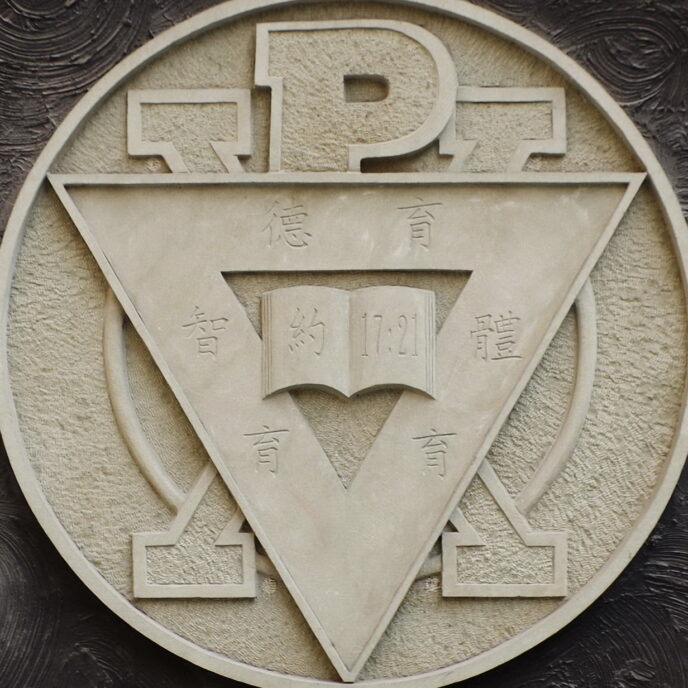Reflections on Christian missions in colonial times
The emergence of the YMCA (Young Men’s Christian Association) occurred at times of great social change in Britain as the industrial revolution brought so many younger people to the cities from the rural areas. The movement quickly spread, staffed primarily by people of good will. Now in 120 countries, with headquarters in Geneva, the Y, as it is now commonly called, serves both young men and women (the latter as the YWCA).
Today, the idea of Christian missions functioning as part of Western colonial expansionism is widely criticized, often for reasons that resonate deeply both among Christians and the secular communities. Viewed most cynically, missionaries were simply stooges, used by governments to subdue other peoples, as they exacted resources to enrich colonial commercial interests. Hindsight certainly provides examples of such, from the horrendous example of the Spanish when first in the New World to the duplicity of King Leopold of Belgium where he built a cruel system of exploitation under the facade of a charitable organization that would bring help to the people of the Congo. The generalization of such images, however, to the whole of the missionary movement is far too superficial and commonly promoted for ideological reasons.
The history of this period is currently being revisited with a more balanced critique in recognition of the positive contributions of individuals and movements that have struggled to assert a more humane shaping of colonial forces. In many important ways, Christian missions responded to the social needs of people in ways that traders and military people had little inclination to pursue. Nevertheless, people everywhere function within the frameworks of cultural values and perspectives of their times. Religion, when not co-opted by the state or the vested powers of elites, can still function to critically reflect on social values within cultures.
By far the largest Christian mission in China, the China Inland Mission, recruited people directly out of churches with no support coming from Western governments. The teachings of Christ were linked with the call of his followers to be salt and light in the surrounding cultures. We do have evidence, if we choose to be open to it, that Christian missions often functioned for the well-being of those to whom they chose to minister, even as they espoused a Christian way of life too often distorted by the dominant western culture of the time. While hindsight critique has value, one needs to also ask what western colonialism might have looked like without the involvement of Christian missions.
During my time in China, and even before, I have had a keen interest in the effects of mission work internationally. Presbyterians, in particular, are recognized for their balanced commitments to both Christian teaching and quality education. Modern approaches to primary and secondary education, and especially the inclusion of girls in schools, were all initiated in China through Christian missions. Medical training and other forms of higher education, not unlike those same institutions in the West, were the product of Christian missions in China. This brings me to the role of the YMCA movement as it existed and functioned during these times of rapid change in China.
YMCA beginnings
As a young man at 23, George Williams formed the first YMCA group in London in 1844. Within 10 years it took root in other countries and by 1855 an international association had been formed. Motivated by Christian values, the movement sought to promote a healthy lifestyle for young men focused on body, mind and spirit, a three-part focus retained in the triangular symbol to this day.
One of the early leaders was a Noble Prize laureate, Henry Dunant of Switzerland, who not only promoted the YMCA internationally, but was also founder of the International Red Cross.
At the time of the founding of the YMCA in Chengdu, however, it was common for leadership to be assumed within each of the hosting countries. In China, that leadership was assumed first by Fletcher Brockman (an American who is recognized for his role in promoting the teaching of science in China), but soon was passed to Chinese leadership under C T Wang (aka Wang Zhengting) and Yu Rizhang. By 1932 this native leadership successfully quickly grew the Y organization to a total of 38 city branches in China with 175 student groups organized in schools and government agencies. Following their time with the YMCA, both men moved on to significant roles in Chinese governments of their times and international recognition. C T Wang was at different times was foreign minister, minister of finance, minister of justice and acting premier of governments during the period known as the Republic of China. Yu, through the YMCA network, appealed to the increasingly diverse and educated classes with a lecture series that went a long way to effectively addressing the developmental needs of China.
Meanwhile, within the YMCA movement, John R Mott was a rising leader. Starting in 1888 with responsibilities in the US and Canada, he was later International Secretary from 1926 to 1937. For much of this same period, Mott was an internationally recognized Christian missions leader as he headed up the World Student Christian Federation (later known as the Student Christian Movement, SCM). In these roles he recruited hundreds of college graduates to embark on Christian missions activity in China and elsewhere. His most famous book was The Evangelization of the World in this Generation was published in 1904. Always a visionary and strongly committed to fostering cooperation and understanding, he was centrally involved in creating the World Council of Churches (1948) and was given a Nobel Prize for his international peace work.
I have selected some famous quotes by Mott which helps to capture the prevailing acceptance and role of Christian missions in the world. See here.
China preserving the YMCA buildings in Chengdu
As a memorial to attempts at strengthening China and serving the common good, Chengdu City is maintaining these buildings in celebration of their historical role in the development of China. The YMCA/YWCA movement did much to facilitate the early opening up of China to the rest of the world while still encouraging the development of values and personal character so important to traditional Chinese culture and leadership.
See: Historic YMCA site in Chengdu (Sichuan Province)
 Chinese historical figures that were influenced by the YMCA
Chinese historical figures that were influenced by the YMCA
I have a three-book series that provide biographical sketches of early Chinese leaders who were strongly influenced by their missionary connections and the earliest student exchanges between China and the USA. A review of the indexes show that a full 15 of the 26 Chinese personalities in these biographical collections were directly influenced in significant ways by the YMCA.
See also: John R Mott, YMCA leader — famous quotes
First published: 2022/09/02
Latest revision: 2024/04/15
